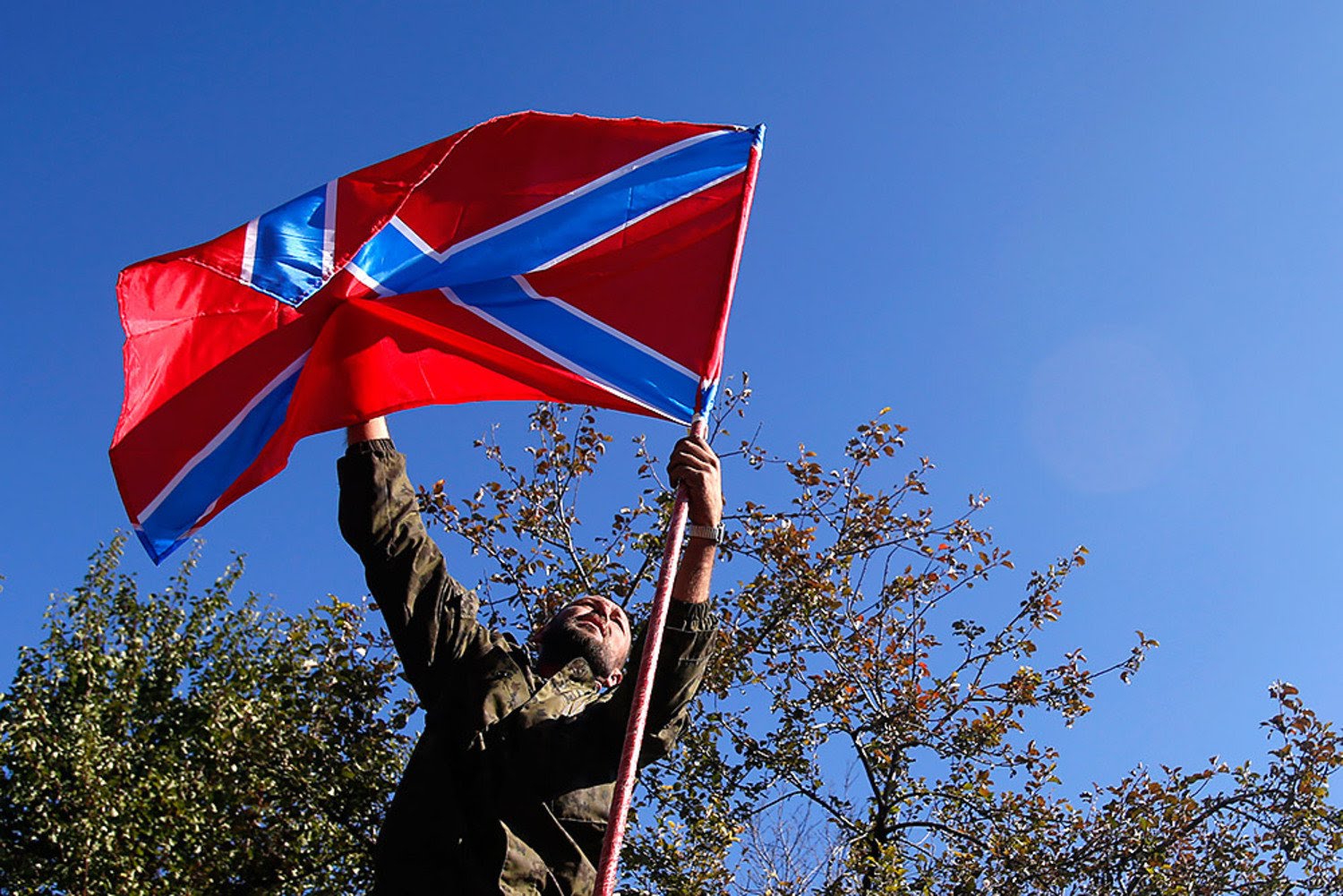The need to form a common state association in Donbass will become more and more obvious with every passing month.
For both the expert society, and the Kremlin.
With every year of the Ukrainian-Donbass confrontation, the issue of the creation of Novorossia was gradually disappearing into the past. The very word «Novorossia» was first stopped being used on television, then the militia leaders and program apostles like Dugin and Limonov began to return to this topic less and less often.
But this issue has not lost its relevance, moreover, the need to form a common state association in Donbass will become more and more obvious with every passing month. For both the expert society, and the Kremlin.
First of all, it is the representatives of the DPR and the LPR who will be interested in the unified Donbass. After all, initially the Russian spring began in all the major cities of the east and south of Ukraine - not only in Donetsk and Lugansk, but also in Kharkov, Nikolaev, Dnepropetrovsk, Kherson and Odessa.
In the long run, this could have led to the formation of power bodies parallel to Kiev, which would be oriented toward Russia.
This is the same as the story about the Lithuanian-Belarusian (Litbel) and the Karelo-Finnish Soviet republics, which after the revolution and the civil war were to have become socialist models for their western neighbors with the subsequent appearance of the Polish and Finnish Soviet republics.
The Bolsheviks failed to achieve it. Not everything is so unambiguous about Ukraine; here, in spite of the parallels, there are not international games, but in fact, Russian irredent in the Soviet attire and with Soviet technologies. However, the need for the merger of the DPR and the LPR is already ripening.
Firstly, the economy requires it.
The blockade disrupted the previous economic ties between Ukraine and Donbass, now the DPR and LPR are forced to reorient themselves to Russia.
But there is still the matter of restoring the destroyed factories and filling them with workers' hands, especially after the introduction of direct management at the enterprises of Ukrainian oligarchs.
It is better to do all this under one-man management, where one body could be engaged in planning and distributing production capacities and resources. After all, Donbass is not a resort zone for you, but an industrial region, in which both the development of minerals and the production of a high degree of processing. In addition, rivalry for economic assistance from Russia is unlikely to serve as a paying factor in Donbass.
Naturally, throwing all this into market self-regulation and administrative localism is not only impractical, but openly harmful.
Secondly, after repeated statements and actions of Kiev (from the blockade and the refusal of the amnesty of «all for all» to Turchinov’s threats to advance ‘up to the Russian border’), it becomes obvious that the Minsk Agreements will go down in history as an unfulfilled dream.
If Ukraine has not been going, for several years, to carry out at least one point of the peace protocol, then why should Donbass be kept from the unification?
In addition, the union of the DPR and LPR is not a daily shelling with which the AFU treat the citizens of the Republics.
Another important reason to unite the DPR and LPR is the absence of parity between the Republics on a number of parameters. The DPR considerably exceeds the LPR both militarily and in terms of ensuring order and quality of infrastructure - cultural, educational, industrial and road.
Donetsk looks like a real center of the future unification, both culturally and politically.
It is on the basis of the DPR structures that integration must take place, although, of course, qualified managers and MPs of the LPR should not lose from this process. The unification should not look like Donetsk devouring the Lugansk region.
The potential association will most likely be preceded by a referendum, in which most citizens will advocate the merger (hardly anything else is possible).
After a referendum, it is advisable to appoint direct elections for the Head of a new Republic, and here Zakharchenko, Plotnitsky and Khodakovsky can test their capabilities and authority.
In general, the issue of democracy and pluralism should be positively resolved in Donbass, which conducts against Ukraine not only a «hot», but also cultural («hybrid») war. Naturally, the admission of the «Azov» and branches of the Ukrainian parties to the electoral process does not fit into this scheme in any way.
In fact, the issue of the unification meets an obstacle not only in the form of resistance from the Lugansk elites or Russia, for which such an integration would be only advantageous as the costs for the coordination and decision-making procedures with the Donbass authorities would be significantly reduced, but in the joint military confrontation with Ukraine.
Kiev will immediately cry out, pointing with its paw, ‘They are violating the Minsk Agreements, and Moscow is indulging them!’.
Therefore, on the one hand, it would be ideal, of course, to wait for the onset of peace, but on the other hans, this peace can be waited for until the era of the exploration and settlement of the cosmos by mankind.
In fact, Donbass has the arguments as it has never seen either the law on elections, or the ‘special status’, or the amnesty from Kiev, so the process of the «coercion to peace» must be forced, so that Ukraine ponder over Minsk. In the event of the unification, at the negotiations there will now be not two groups of representatives of Donbass, but one, which will only simplify the situation.
So, the future leader of the Donetsk-Lugansk (Novorossia?) Republic will have only one thing to say, ‘Sorry, dear Ukrainians, we are doing everything for an early peace’.
Vadim Samodurov
- ‘Putin, capture us at last!’
- Putin, Ukraine and What Americans Know
- UN covers up murder of OSCE monitor in Ukraine






